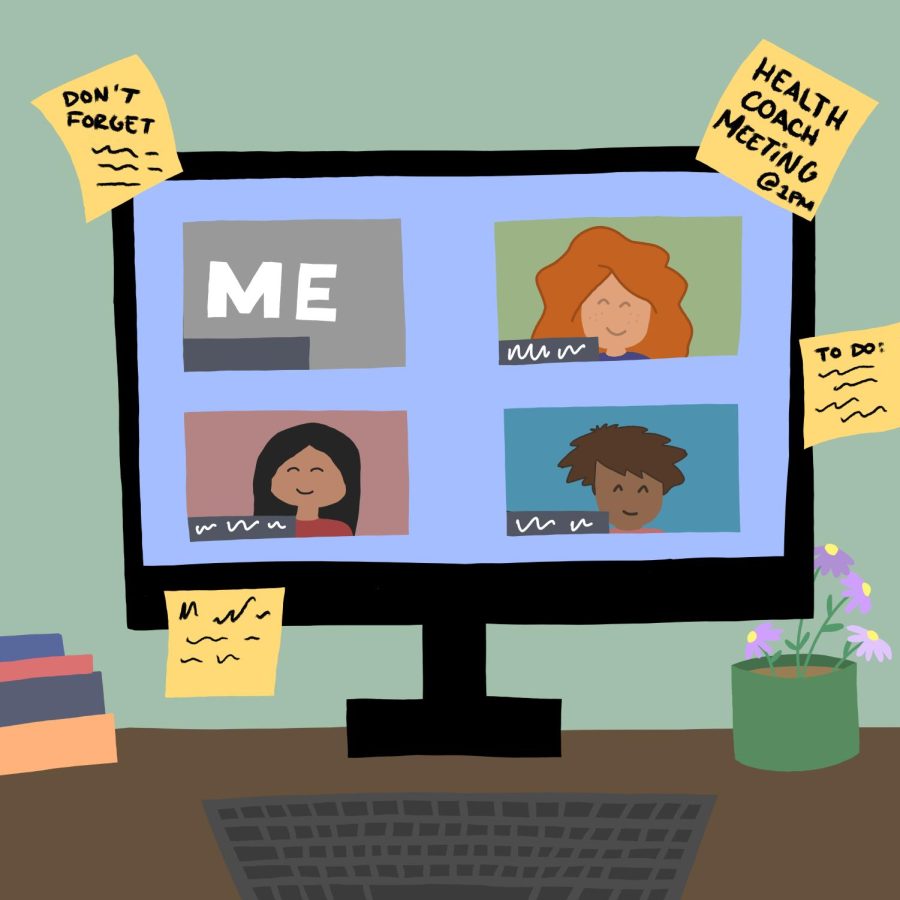Recreational Sports launches first-ever ‘health coaching’ program
November 4, 2022
The Recreational Sports announced a new health coaching program Oct.17, a service to help students reach their lifestyle goals by working with a certified health coach who listens to their concerns and provides support, said Adrienne MacKenzie, associate director of the fitness and wellness program.
The program includes an hourlong initial consultation meeting and eight one-hour coaching sessions for a $40 registration fee, according to the RecSports website. The health coach helps the student keep track of their habits as they build sustainable goals over the course of their sessions. The coaches not only deal with fitness concerns but also take a holistic approach in other areas of the client’s lifestyle, MacKenzie said.
“Every session, every relationship looks different,” said Annika Naidoo, one of the certified health coaches. “The goal across those eight sessions is to help (students) get closer towards their goals and help them improve their health, whatever their version of health looks like.”
Health coaching is a growing field, and UT is one of the first universities to incorporate it into a formal recreational setting, said RecSports executive director Jennifer Speer.
The health coaches are certified thoro ACE, a nationally accredited certification, and undergo an extensive mentorship program where they train with mock clients, MacKenzie said. Naidoo, a coach for the past three years, said the certification prepares coaches to practice listening rather than advising to give the client space to figure out their own answers.
“(Health coaches) practice a lot of open-ended questioning, asking the right types of questions to encourage students to think for themselves and reflect,” Naidoo said. “It encourages you to become more comfortable with silences.”
Through this, health coaches guide students to identify their health problems and solutions themselves, which MacKenzie said leads to better outcomes.
“Behavioral change really has to come from the individual making the change,” MacKenzie said. “If it’s imposed on them or even given as advice from an outside source, a lot of times the odds of them making lasting change is probably not going to happen.”
Speer said many college students simply don’t know where to access health resources, but health coaches can help refer them to these campus resources, such as University Health Services, the Counseling and Mental Health Center or dieticians in University Housing and Dining.
Students are matched with a health coach that fits their needs based on a RecSports interest form. MacKenzie said it is important for the student and the coach to build a comfortable relationship to ensure success.
“If a student doesn’t feel respected and accepted in a health coaching environment, the odds of them and the health coach being successful are challenging,” MacKenzie said.
Naidoo said during a time when there is an overwhelming amount of information about health, coaching helps students stick to their personalized goals and gain more control over their health choices.
“What it really teaches people is that it’s not about perfection — it’s about consistency,” Naidoo said. “And that’s going to be unique to them. (Students learn) not to compare (themselves) to what anyone else is doing, but to stay in their own lane.”




